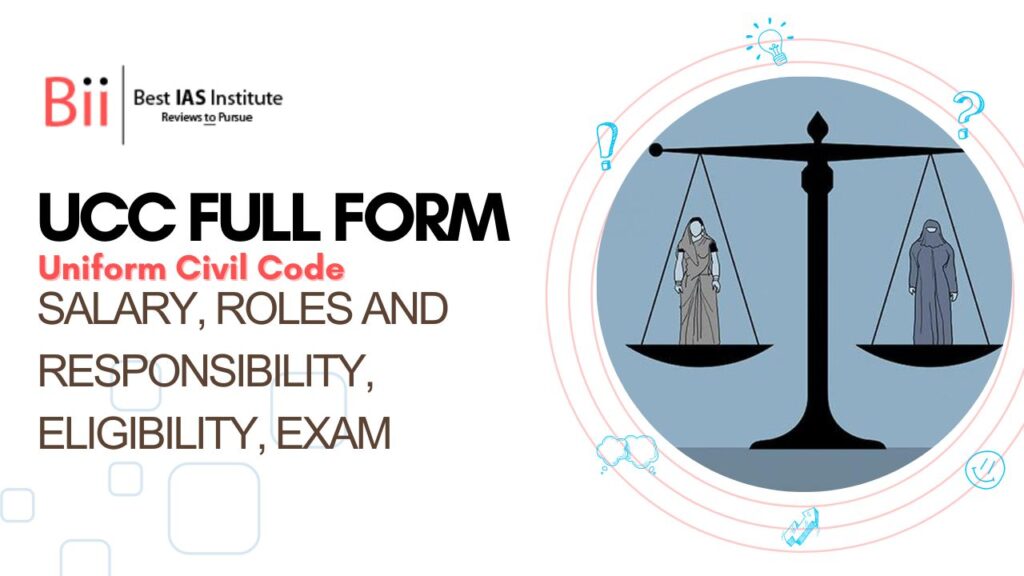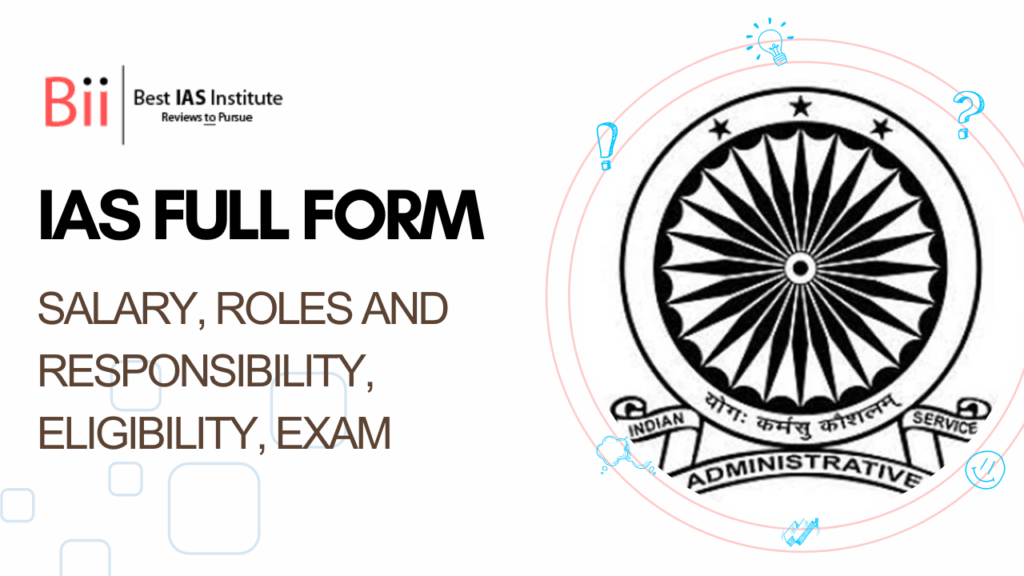
What is the Full form of UCC Full Form?
UCC full form is Uniform Civil Code and It is a set of laws that governs all the transactions and it refers to a legal framework that seeks to unify and standardize personal laws related to marriage, divorce, inheritance, and other civil matters for all citizens within a country, irrespective of their religion or ethnicity. The implementation of a Uniform Civil Code aims to promote equality and eliminate discriminatory practices based on religious or customary laws. Different countries have their own variations of a Uniform Civil Code or similar legal frameworks. In this article, you will read about the Uniform Civil Code in India, its history, arguments in favor of UCC, arguments against UCC, etc.
What is UCC?
The Uniform Civil Code is to create a uniform set of rules governing personal matters such as marriage, divorce, inheritance, and adoption for all citizens, thereby promoting equality and eliminating discriminatory practices based on religious or customary laws.
Uniform Civil Code is rooted in the principles of secularism, equality before the law, and gender justice. It envisions a legal system that treats all citizens equally, regardless of their religious or cultural background. In India, it replaces the existing religious personal laws and has a uniform law that is applicable to all citizens irrespective of their religion, gender, or age. It states that all sections of society are treated equally irrespective of their religion according to the national civil code. Dr. B. R. Ambedkar brought this into action to replace personal laws followed by the people of different religions.
| UCC Full Form | |
| UCC Full Form | Uniform Civil Code (UCC) |
| Purpose | To establish and enforce a common set of civil laws for all Indian citizens, irrespective of their religion, gender, or sexual orientation. |
| Significance | Promotes equality before the law, gender equality, and secularism. |
History of UCC- Uniform Civil Code
Established in 1892, ULC is also called the National Conference of Commissioners on Uniform State Laws (NCCUSL). After this many laws were established by the organizations until the 1950s. In 1940, the ULC worked on the task of drafting a code to provide guidelines for all the financial transactions.
Uniform Civil Code UCC was presented to the states in 1951, and in 1953 it was adopted by Pennsylvania and also other states. The UCC is the longest and most elaborate of the Uniform laws.According to the committee’s recommendation, which was based on the scriptures, women would have equal rights under a codified version of Hindu law. The 1937 Act was reviewed, and the committee suggested establishing a civil code for Hindu marriage and succession.
Importance of Uniform Civil Code
UCC brings India together as a country since people from all parts of the country follow different practices and their laws. The aim of UCC is to integrate India and covers all the areas such as marriage, maintenance, divorce, inheritance and adoption. As most of the personal laws are based on different communities depending on their religious books, so it is used to unite all the citizens irrespective of their sex and religion.
Articles under Uniform Civil Code (UCC)
| Article-1 | This article outlines the fundamental principles and guidelines governing the Uniform Civil Code (UCC), setting the stage for its functioning. |
| Article-2 | This article focuses on the sale of goods, excluding services and real estate projects. Additionally, Article 2a specifically addresses leases of personal property, providing a framework for these transactions. |
| Article-3 | This article deals with drafts and negotiable products such as the notes. Article 3 has its roots in the National instrumental law which was approved by the National Conference of Commissioners on Uniform State Laws. |
| Article-4 | This article is based on bank deposits and collections. It governs and provides rules for inter related transactions and Processing of checks. |
| Article-5 | This Article focuses on Letters of Credit, issued by banks or financial institutions to facilitate trade. Updated in 1995, it adapts to modern technologies and evolving business practices. |
| Article-6 | This article governs bulk sales. The original version of this was replaced by the revised version and almost every state followed this recommendation. |
| Article-7 | This article pertains to documents such as receipts, bills of lading, and bulk sales that serve as evidence of ownership or control. |
| Article-8 | This article governs investment securities. It is the responsibility of the UCC to hold the securities through intermediaries. It specifies the mechanism by which the securities are recorded. |
| Article-9 | The final article in the Uniform Civil Code, Article 9, focuses on secured transactions related to personal property. It mandates each state to maintain an office for filing statements on secured interests in personal property. |
Arguments in Favor of Uniform Civil Code
- In Gender Equality: India’s current personal laws, which vary by religion, can contain provisions that are perceived as discriminatory against women. A UCC could establish uniform legal rights and protections for men and women in matters like marriage, divorce, and inheritance.
- In Secularism:It would establish a common civil law applicable to all citizens, irrespective of their religious affiliations, fostering a secular and inclusive society.
- In Legal Simplicity: It would simplify India’s legal system by harmonizing personal laws and making legal processes related to personal matters more straightforward and efficient.
- In Social Justice: It would eliminate the potential for discrimination based on religious and customary practices.
- In Modernization: Supporters argue that personal laws, which often reflect traditional customs, need to be modernised to reflect contemporary values and societal norms.
Arguments against of Uniform Civil Code
- Against Religious Freedom: Opponents argue that a UCC could infringe on religious freedom by imposing a common set of laws on individuals who wish to follow their religious customs and practices in personal matters.
- Against Cultural Diversity: India is a diverse country with multiple religions and cultures. Critics contend that imposing a single set of laws could disregard the cultural and religious diversity of the population.
- Against Social Disruption: Some opponents fear that implementing a UCC could lead to social disruption and conflicts, particularly in communities where religious customs and personal laws are deeply ingrained.
- Against Complexity of Implementation: Critics contend that the practical implementation of a UCC, especially in a diverse country like India, would be a complex and challenging process.
Conclusion
Uniform Civil Code (UCC) is a legislation in India that aims to establish uniform personal laws applicable to all individuals, irrespective of their gender, sexual orientation, or religious affiliation. Currently, personal laws are governed by religious texts specific to different communities. The UCC objective of India’s Uniform Civil Code is to establish and enforce personal rules that treat all citizens equally, irrespective of factors like gender, sexual orientation, or religion.



